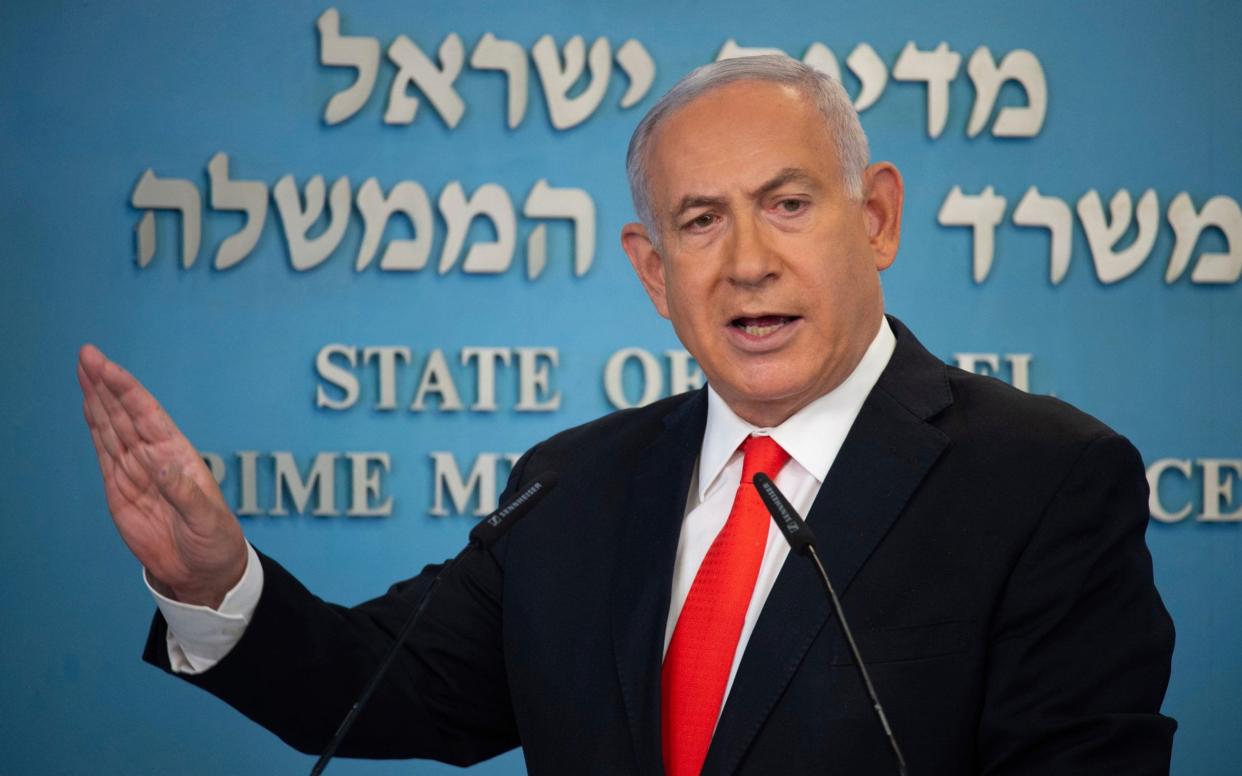Israel imposes a second national lockdown as coronavirus infections soar

Israel has become the first major country to impose a second, nationwide lockdown after the number of coronavirus infections exceeded 4,000 per day and health officials warned that hospitals could soon be overwhelmed.
On Sunday night, the Israeli government agreed to impose a three-week lockdown beginning this Friday, to coincide with the start of the High Holiday season, when many Israelis would usually be celebrating with their families.
Under those rules, all schools and most shops will be closed, while residents are banned from travelling beyond a 500-yard radius of the home, unless it is for essential travel such as buying food or medicine.
Benjamin Netanyahu, the Israeli prime minister, admitted that everyone would pay a “heavy price” for going back into lockdown, particularly in economic terms, but warned it was the only option left on the table.
“The medical experts told me to close... when the health system raises a red flag,” he said, suggesting that Israel’s hospitals are nearing full capacity for coronavirus patients. “They’re warning us about the jump in the number of seriously ill patients.”
Israeli ministers were extremely reluctant to return to lockdown as it has wrought havoc on the economy, such as an unprecedented unemployment rate of more than 20 per cent.

Some Israeli business owners have already threatened to boycott the lockdown, warning that they will go bankrupt unless they stay open.
“For three months, I tried to avoid a lockdown. I did everything so that we could live alongside the coronavirus, with rules here and there,” said Yuli Edelstein, Israel’s health minister. “Under the circumstances that were created, we had no choice.”
Israel was one of the first countries to go into lockdown, in March 2020, but also one of the quickest to reopen its economy after the infection rate fell to just a dozen or so cases per day.
At the time, the country was praised for its swift recovery from the first wave of the virus. But in June it became clear that a much more severe second wave was already underway. Analysts believe the decision to reopen schools in Israel had a major impact on the second wave of infections.
In total, there have been 157,000 coronavirus cases in Israel, of which the majority have recovered, and more than a thousand deaths.
Despite the lockdown fast approaching, Mr Netanyahu is flying to Washington this week to sign historic peace agreements with the United Arab Emirates and Bahrain.
The accords, which were overseen by President Donald Trump, will normalise diplomatic ties between Israel and the two wealthy Gulf states.

